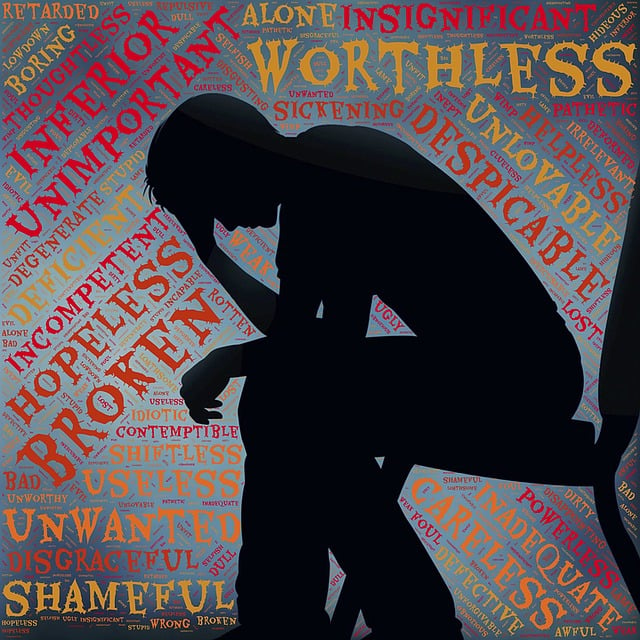Louisville Adolescent and Teen Therapy emphasizes risk assessment as a cornerstone of personalized care, predicting and managing emotional health risks through client backgrounds and triggers. Cultural competency training enhances support for diverse populations facing unique challenges like socioeconomic inequality, cyberbullying, and substance abuse. Effective risk mitigation includes open communication, self-awareness exercises, and proactive stress management workshops. Professionals continuously update evidence-based techniques to enhance therapeutic outcomes and manage complex cases, supporting teens and families throughout healing journeys.
In the critical field of mental health care, particularly within Louisville Adolescent and Teen Therapy, risk assessment is an indispensable tool for ensuring patient safety. This article delves into the core components of risk assessment in mental health practice, highlighting unique risks specific to adolescent and teen populations in Louisville. We explore evidence-based strategies for effective risk management, emphasizing continuous evaluation as a cornerstone for delivering safe and improved care. By understanding and implementing these practices, mental health professionals can create a secure environment conducive to healing.
- Understanding Risk Assessment in Mental Health Practice
- Identifying Risks Specific to Louisville Adolescent and Teen Therapy
- Implementing Effective Risk Management Strategies
- Continuous Evaluation and Improvement for Safe Care Delivery
Understanding Risk Assessment in Mental Health Practice

In the realm of mental health practice, risk assessment is a fundamental tool that guides Louisville Adolescent and Teen Therapy professionals in delivering effective care. It involves a comprehensive evaluation of various factors—including an individual’s history, current circumstances, and potential triggers—to anticipate and mitigate risks related to emotional well-being. By delving into these assessments, healthcare providers gain valuable insights, enabling them to tailor interventions that foster inner strength development and promote healthy emotional regulation.
Understanding risk assessment is crucial for cultivating cultural competency among Louisville Adolescent and Teen Therapy healthcare providers. This involves recognizing and addressing unique challenges faced by diverse populations while ensuring culturally sensitive practices. Through ongoing training in cultural competency, providers enhance their ability to assess and respond to risks appropriately, ultimately fostering a supportive environment that nurtures clients’ emotional growth and resilience.
Identifying Risks Specific to Louisville Adolescent and Teen Therapy

Louisville Adolescent and Teen Therapy practices face unique challenges that demand a thorough risk assessment. One key area to scrutinize is the potential for secondary risks stemming from the city’s specific demographics and social dynamics. Louisville, like many urban centers, grapples with issues such as socioeconomic inequality, access to quality education, and high rates of unemployment—all factors that can contribute to mental health struggles among adolescents and teens.
For example, therapists need to be attuned to the impact of systemic racism and discrimination on young people’s well-being, which may manifest as trauma, anxiety, or depression. Additionally, addressing emerging trends like cyberbullying, social media pressure, and substance abuse requires tailored interventions. Implementing a robust Community Outreach Program can mitigate these risks by fostering connections with at-risk youth, offering early intervention services, and promoting programs focused on Depression Prevention and Self-Esteem Improvement.
Implementing Effective Risk Management Strategies

Mental health professionals in Louisville Adolescent and Teen Therapy face unique challenges when it comes to risk assessment and management. To ensure the safety and well-being of both clients and practitioners, implementing robust risk mitigation strategies is essential. This begins with a comprehensive understanding of potential risks, including identifying triggers related to past traumas, suicidal ideation, or behavioral issues. By staying attuned to these factors, therapists can create safe spaces that foster open communication.
Effective risk management involves proactive measures such as regular Self-Awareness Exercises and integrating Self-Care Practices into daily routines. The Stress Management Workshops Organization offers valuable resources for professionals seeking to enhance their coping mechanisms and prevent burnout. Through ongoing training and a commitment to Self-Care, Louisville Adolescent and Teen Therapy specialists can better navigate complex situations, ultimately providing more effective care for their clients.
Continuous Evaluation and Improvement for Safe Care Delivery

Mental health professionals at Louisville Adolescent and Teen Therapy are committed to continuous evaluation and improvement to ensure the safe delivery of care. This involves regularly reviewing clinical practices, staying updated with evidence-based techniques like Conflict Resolution Techniques, Social Skills Training, and Stress Reduction Methods, and incorporating these strategies into sessions to enhance therapeutic outcomes. By fostering a culture of ongoing learning and adaptation, our team can better navigate complex cases, manage crises effectively, and support teens and their families through every stage of the healing process.
Mental health professionals in Louisville Adolescent and Teen Therapy must consistently assess and manage risks to ensure a safe environment for their clients. By understanding risk assessment methodologies, identifying unique adolescent-specific hazards, and implementing robust risk management strategies, therapists can create a secure space for healing. Continuous evaluation and adaptation of these processes are vital to improving care delivery, fostering trust, and promoting positive outcomes in Louisville’s teen therapy setting.














